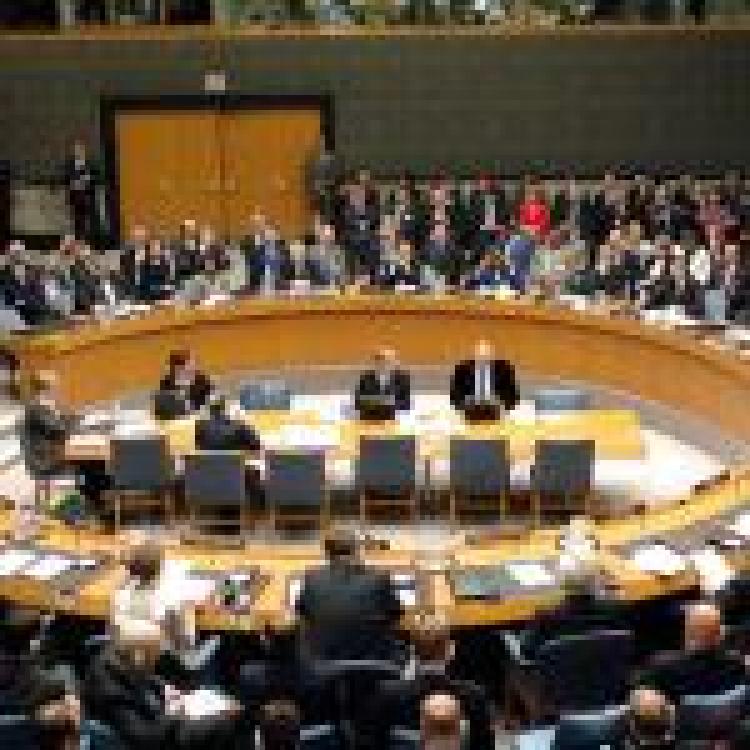<p>The UN Secretary General’s envoy for Western Sahara concluded talks between the the Polisario Front and Morocco, in what were the first political negotiations between the two sides in 6 years.</p>
<p>Last week, two days of talks facilitated by UN envoy Horst Koehler, a former German president, ended with both sides agreeing to meet for a second round of negotiations in the first quarter of 2019.</p>
<p>Morocco offered significant self-autonomy for Western Saahara, whilst Polisario Front assured that its local population numbering 350,000 to 500,00 has the right to a referendum on the territory’s future.</p>
<p>The Foreign Ministers of neighbouring Algeria and Mauritania also took part in the discussions in Geneva.</p>
<p>Speaking at the end of the two days, the UN spokesperson Stephane Dujarric, <a href="https://abcnews.go.com/International/wireStory/led-talks-western-sahara…">said,</a></p>
<p>“Discussions took place in an atmosphere of serious engagement, frankness and mutual respect, and the fact that the delegation agreed with Mr Kohler to come back for a second round is something that is clearly a positive step forward.”</p>
<p>The talks come after the UN Security Council, last month, passed a resolution, extending the mandate of the UN Secretary General envoy on Western Sahara (MINURSO), to seek a political solution providing self-determination for the people of Western Sahara.</p>
<p>Frente Polisario, the armed resistance movement seeking to secure national aspirations of the Saharawi people, took note of the resolution calling on the Security Council to “<strong>use its collective weight to advance direct negotiations between the two parties</strong>” with a view to enable “the free and full exercise” of the aspirations of the Saharawi people.</p>
<p>The Moroccan government also welcomed the resolution, with talks expected to take place under the auspices of the UN Secretary General Antonio Guterres.</p>
<p>Speaking at the Security Council briefing on Western Sahara, the United Kingdom Deputy Political Coordinator, David Clay, <a href="https://www.gov.uk/government/speeches/path-to-providing-self-determina…">said,</a></p>
<p>“<strong>The UK was pleased to vote in favour of this resolution today, which supports the work of the UN Secretary-General’s Personal Envoy, Mr Horst Koehler, and rightly focuses on progress that must be made towards a lasting and mutually acceptable solution that will provide for the self-determination of the people of Western Sahara. We are very grateful to our US colleagues for their efforts to ensure this resolution sends a signal of the Council’s strong support for political progress whilst underpinning the important work of MINURSO.</strong> The UK looks forward to the roundtable talks in December which will mark the start of a process and encourages all concerned to work constructively with the Personal Envoy in the spirit of compromise through the duration of the process to ensure a successful outcome.”</p>
<p>The last few years have seen Morocco <a href="https://thediplomat.com/2017/03/morocco-chinas-gateway-to-africa/">labelled as</a> China’s gateway to Africa. In 2016 Morocco hosted the first Sino-African Entrepreneurs Summit, in Marrakech. Later that year, Morocco’s King made a high level state visit to China and secured $10 billion investment plan for China to develop an industrial city in Morocco’s northern city of Tangiers. Morocco also dropped visa requirements for Chinese tourists in response to deepening relations. </p>
<p>Morocco’s strengthening relations with modern day China stem from the inception of the People’s Republic of China (PRC). Following the end of the civil war between PRC and Taiwan, Morocco was the second country in Africa to recognise the People’s Republic of China and establish diplomatic relations in 1958.</p>
<p>Despite China’s deepening economic ties with Morocco and historic trend of supporting non-intervention at the UN Security Council, it has continued to allow US backed Security Council resolutions on Western Sahara self-determination to pass by abstaining. </p>
<p> </p>
We need your support. Every contribution counts.
Sri Lanka is one of the most dangerous places in the world to be a journalist. Tamil journalists are particularly at threat, with at least 41 media workers known to have been killed by the Sri Lankan state or its paramilitaries during and after the armed conflict.
Despite the risks, our team on the ground remain committed to providing detailed and accurate reporting of developments in the Tamil homeland, across the island and around the world, as well as providing expert analysis and insight from the Tamil point of view
We need your support in keeping our journalism going. Support our work today.

